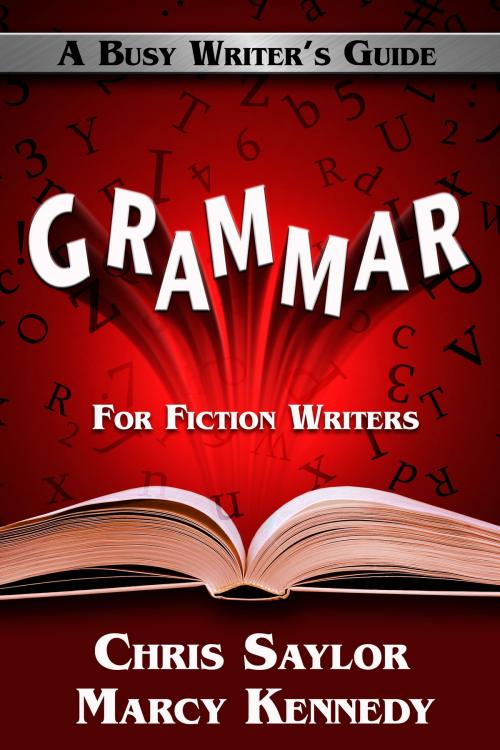Grammar for Fiction Writers
Nonfiction, Reference & Language, Language Arts, Writing & Publishing, Editing & Proofreading, Writing Skills, Reference| Author: | Marcy Kennedy, Chris Saylor | ISBN: | 9780992037178 |
| Publisher: | Tongue Untied Communications | Publication: | August 22, 2014 |
| Imprint: | Language: | English |
| Author: | Marcy Kennedy, Chris Saylor |
| ISBN: | 9780992037178 |
| Publisher: | Tongue Untied Communications |
| Publication: | August 22, 2014 |
| Imprint: | |
| Language: | English |
Not your same old boring grammar guide! This book is fun, fast, and focused on writing amazing fiction.
The world of grammar is huge, but fiction writers don’t need to know all the nuances to write well. In fact, some of the rules you were taught in English class will actually hurt your fiction writing, not help it.
Grammar for Fiction Writers won’t teach you things you don’t need to know. It’s all about the grammar that’s relevant to you as you write your novels and short stories.
Here’s what you’ll find inside:
• Punctuation Basics including the special uses of dashes and ellipses in fiction, common comma problems, how to format your dialogue, and untangling possessives and contractions.
• Knowing What Your Words Mean and What They Don’t including commonly confused words, imaginary words and phrases, how to catch and strengthen weak words, and using connotation and denotation to add powerful subtext to your writing.
• Grammar Rules Every Writer Needs to Know and Follow such as maintaining an active voice and making the best use of all the tenses for fast-paced writing that feels immediate and draws the reader in.
• Special Challenges for Fiction Writers like reversing cause and effect, characters who are unintentionally doing the impossible, and orphaned dialogue and pronouns.
• Grammar “Rules” You Can Safely Ignore When Writing Fiction
Each book in the Busy Writer’s Guides series is intended to give you enough theory so that you can understand why things work and why they don’t, but also enough examples to see how that theory looks in practice. In addition, they provide tips and exercises to help you take it to the pages of your own story with an editor's-eye view. Most importantly, they cut the fluff so you have more time to write and to live your life.
Not your same old boring grammar guide! This book is fun, fast, and focused on writing amazing fiction.
The world of grammar is huge, but fiction writers don’t need to know all the nuances to write well. In fact, some of the rules you were taught in English class will actually hurt your fiction writing, not help it.
Grammar for Fiction Writers won’t teach you things you don’t need to know. It’s all about the grammar that’s relevant to you as you write your novels and short stories.
Here’s what you’ll find inside:
• Punctuation Basics including the special uses of dashes and ellipses in fiction, common comma problems, how to format your dialogue, and untangling possessives and contractions.
• Knowing What Your Words Mean and What They Don’t including commonly confused words, imaginary words and phrases, how to catch and strengthen weak words, and using connotation and denotation to add powerful subtext to your writing.
• Grammar Rules Every Writer Needs to Know and Follow such as maintaining an active voice and making the best use of all the tenses for fast-paced writing that feels immediate and draws the reader in.
• Special Challenges for Fiction Writers like reversing cause and effect, characters who are unintentionally doing the impossible, and orphaned dialogue and pronouns.
• Grammar “Rules” You Can Safely Ignore When Writing Fiction
Each book in the Busy Writer’s Guides series is intended to give you enough theory so that you can understand why things work and why they don’t, but also enough examples to see how that theory looks in practice. In addition, they provide tips and exercises to help you take it to the pages of your own story with an editor's-eye view. Most importantly, they cut the fluff so you have more time to write and to live your life.















